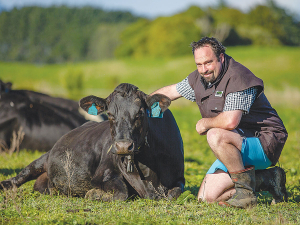Farmers are throwing down the gauntlet to politicians - hold an independent inquiry into rural bank lending or face tough questions from the farming sector.
Federated Farmers national board member Richard McIntyre says the farmer lobby is continuing to push for an independent inquiry into rural banking on behalf of our members, but whether that will go ahead is ultimately up to Parliament.
"We've done the best job we can to highlight the issue and lay out a compelling case for politicians to take a deeper look at the topic, but we know the banks are pushing back strongly," he told Rural News.
"This is a serious issue for farmers and adds a lot of cost to their businesses at a time when farming families are really doing it tough.
"Concerns about banks and interest rates are consistently coming out top of the list in our farmer confidence surveys. If the Government doesn't go ahead with this inquiry there are going to be some tough questions asked of them by farmers - and I'm not sure they'd have very good answers to offer."
In a 30-page submission to the primary production select committee, Federated Farmers is "strongly urging" for a full select committee inquiry.
According to the submission, the banks claim Reserve Bank requirements would result in a 0.5% and 1.2% increase in interest rates. Federated Farmers says in a rural lending context, with total rural lending of approximately $62 billion, this equates to an additional cost of $310 million to $720m per annum of interest.
It claims this makes it higher than the cost forecast for the He Waka Eke Noa policy, the primary sector partnership to reduce emissions: HWEN policy was forecast to levy $220 to $290 million from the sector by 2030.
The seven-member primary production select committee is chaired by Mark Cameron, ACT. He was on personal leave last week and couldn't comment. National has three members, Labour two and Greens one. The select committee will make a recommendation to Parliament.
A concern among farmers is that Parliament will back a general inquiry into banking.
McIntyre says that there is a very real risk that if there is a general inquiry into banking, the issues that are incredibly important for farmers and rural communities will be overlooked.
"We can't afford to have these issues lost, or buried, under a pile of concerns about general business lending, urban mortgages and that sort of thing. Farmers have been asking some fair questions for a long time now, and Federated Farmers are determined to get them some answers."
McIntyre says the Feds submission makes a compelling case for an inquiry.
"This is a once in a generation opportunity for us to take a really close look at how our rural banking system is operating - from the Reserve Bank right through to the farmer experience.
"Farmer confidence is at an all-time low, and banking issues are showing up in our surveys as the leading driver - even ahead of regulatory issues and compliance.
"If we can address some of those banking related drivers, I'd hope to see a lift in farmer confidence.
"To give just a few numbers, Federated Farmers banking survey shows the number of farmers satisfied with their banking relationship has nosedived from 80% just a few years ago, to just 55% now.
"Similarly, the proportion of farmers feeling under pressure by their banks has gone from one in 20 in 2015, to one in four today."











